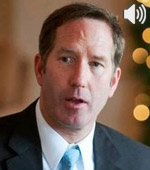Divided Court Allows FCC to Use Law Intended to Reduce Internet Regulation to Increase Internet Regulation
Like most Americans, you probably had no idea that the Internet was somehow broken and in need of an Obama Administration “fix” via a Depression-era federal statute enacted for copper wire telephone technology.
And with good reason. For two decades, America’s tech and Internet sectors have remained among the depressingly few areas of our economy that continued to flourish amid an era characterized by stagnating growth, employment and incomes.
Throughout the Obama tenure, however, his Federal Communications Commission (FCC) has attempted over and over to upend the “light touch” regulatory approach of both Democratic (Clinton) and Republican (Bush) administrations that allowed the Internet to flourish as it has. Today, unfortunately, a sharply divided D.C. Circuit Court of Appeals finally affirmed the FCC’s most recent attempt to impose so-called “Net Neutrality” regulations that essentially equate to ObamaCare for the Internet.
As aptly summarized by Senior Circuit Judge Williams’s dissent, today’s decision allows FCC “use of an Act intended to ‘reduce regulation’ to instead increase regulation.”
Judge Williams cogently captured not only the legal illogic of the majority’s holding, but its real-world unintended consequences as well:
“The ultimate irony of the Commission’s unreasoned patchwork is that, refusing to inquire into competitive conditions, it shuns broadband service onto the legal track suited to natural monopolies. Because that track provides little economic space for new firms seeking market entry or relatively small firms seeking expansion through innovations in business models or in technology, the Commission’s decision has a decent chance of bringing about the conditions under which some (but by no means all) of its actions could be grounded – the prevalence of incurable monopoly.”
Fortunately, this doesn’t end the question. The ruling will likely be appealed, and the FCC’s mismanagement can be corrected via Congressional action or new FCC leadership in a future presidential administration.
But beyond the specific issue in question, today’s unfortunate ruling illustrates again the importance of judicial branch appointments and composition as we approach the election of a president who will make those appointments.

 Timothy Lee, CFIF’s Senior Vice President of Legal and Public Affairs, discusses net neutrality and the misguided push to have the federal government regulate the Internet.
Timothy Lee, CFIF’s Senior Vice President of Legal and Public Affairs, discusses net neutrality and the misguided push to have the federal government regulate the Internet. CFIF Freedom Line Blog RSS Feed
CFIF Freedom Line Blog RSS Feed CFIF on Twitter
CFIF on Twitter CFIF on YouTube
CFIF on YouTube